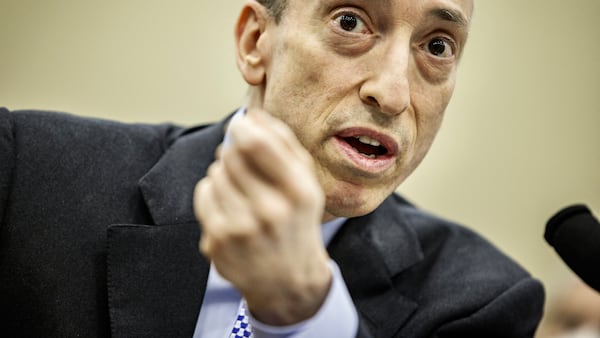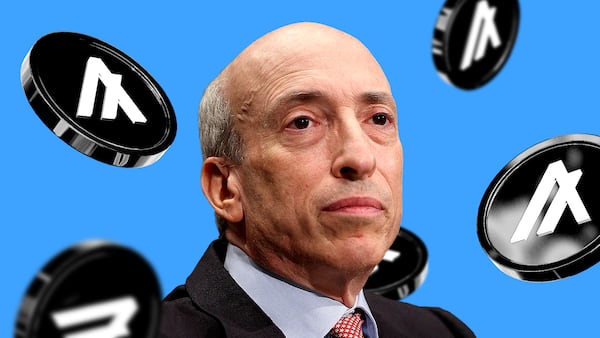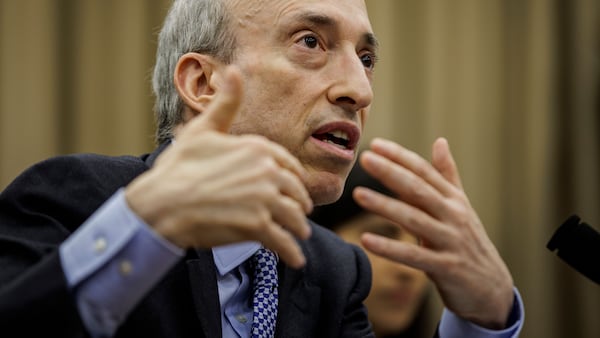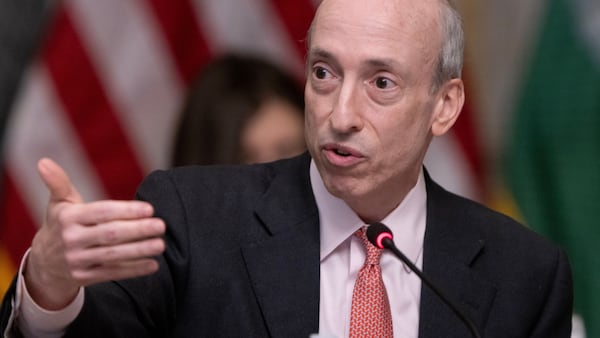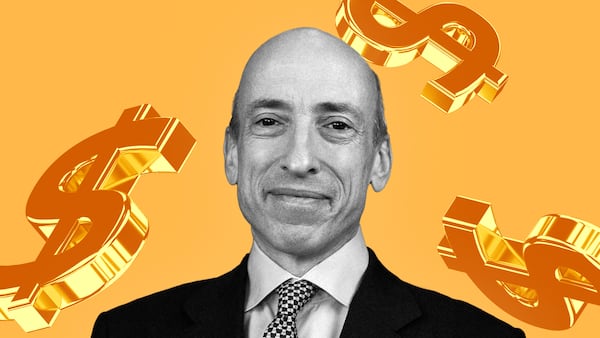- Last year, the SEC sued two NFT companies.
- A pair of NFT artists are now suing the commission before it can sue them too.
Are songs securities? Paintings? What if they’ve been digitised, and put on a blockchain?
Those are the questions an unlikely artistic duo has taken the US securities watchdog to task over.
The pair — a lawyer whose conceptual art has graced the Whitney Museum of American Art in New York, and a songwriter famous for writing a song every day for the past 15 years — preemptively sued the US Securities and Exchange Commission this week.
They took action because of the regulator’s previous stance that some NFT collections can be seen as unregistered securities.
The pair release their art and music as NFTs, and they said they wanted to set things straight before the agency comes knocking.
“It would be crazy to think that Bob Dylan, Janis Joplin, the Rolling Stones, Ray Charles, Jimi Hendrix, Madonna, or Louisiana’s own Louis Armstrong should have retained attorneys to examine the SEC’s Form S-1 to see how to register their music for sale to the general public,” the lawsuit said.
“The application of securities laws to artwork makes no more sense in the digital world.”
In doing so, they joined a growing list of crypto industry players who have taken the fight back to the SEC, which has adopted an adversarial stance towards the industry under Chair Gary Gensler.
Are artworks securities?
The SEC and other US regulators have brought the hammer down on crypto since the $8 billion collapse of FTX in November 2022.
They have pushed banks to ditch clients that traffic in digital assets, pursued crypto heavyweights for allegedly offering unregistered securities, and targeted companies that had made and sold blockchain-based art.
In lawsuits against Impact Theory and Stoner Cats, the SEC said their NFT sales resembled traditional companies’ stock market debuts.
In other words, the buyers invested money in a “common enterprise” with the expectation they’d profit from the companies’ efforts.
The pieces in those NFT collections were unregistered securities, the SEC alleged.
The companies settled and agreed to pay millions in fines and to destroy any pieces still in their possession.\
In an interview this week, Jonathan Mann called the Stoner Cats case his “alarm bell.”
The artist, known as “Song a Day Mann” and who has released songs like “This song is a security,” sued the SEC this week together with Brian Frye, the New Orleans-based lawyer-cum-artist.
The pair have teamed up with crypto attorney Jason Gottlieb of law firm Morrison Cohen.
The artists’ lawsuit says they face “a genuine threat that the SEC will bring an enforcement suit” if they continue to sell artwork without the agency’s permission.
They are asking a federal judge in Louisiana to preemptively rule that they are not, in fact, thumbing their noses at century-old financial regulations.
SEC’s hard stance
The SEC’s registration requirements came out of the Great Depression.
They are meant to protect ordinary investors by forcing companies to disclose information about their stocks and bonds, levelling a playing field once rigged in insiders’ favour.
Crypto executives, attorneys, investors, developers, and lobbyists insist digital assets are unique and deserve bespoke regulation.
However, Gensler has argued most digital assets are unregistered securities.
Tokens singled out in SEC lawsuits include Solana, Cosmos, Cardano, Polygon, and Algorand.
Gottlieb said fear fuels the SEC’s crusade.
“The SEC is very fearful of opening up this situation where the rules and regulations that have been developed over the last 90 years are suddenly tossed out the window because of crypto,” he told DL News.
If crypto assets aren’t securities, “then what’s to stop Apple and IBM and Cisco and Nvidia from saying, ‘Cool, we’re just moving all our stock to the blockchain and we don’t have to follow any of the securities laws?’” he said.
That’s not what the lawsuit is asking for, he continued.
“If Apple tried to say, ‘We’re issuing a new class of stock, but we’re going to issue it on the blockchain and have a cute little picture with it, therefore, ha-ha-ha, it’s art, it’s not a security’ — I think that’s a non starter,” he said.
“But the reason it’s a non-starter is not because it’s art. It’s because it’s stock.”
The SEC didn’t immediately respond to a request for comment.
Aleks Gilbert is DL News’ New York-based DeFi correspondent. You can contact him at aleks@dlnews.com.

